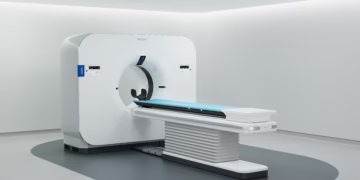- EMA’s CHMP issued an opinion not to recommend Elevidys™ (delandistrogene moxeparvovec) for the treatment of ambulatory individuals with Duchenne muscular dystrophy (DMD)
- Roche will continue its dialogue with the EMA to explore a potential path forward to make Elevidys available to individuals living with DMD in the EU
- Roche believes the benefit-risk remains positive in the ambulatory Duchenne population
- Elevidys is the first and only disease-modifying gene therapy for DMD
Basel, 25 July 2025 – Roche (SIX: RO, ROG; OTCQX: RHHBY) announced today that the Committee for Medicinal Products for Human Use (CHMP) of the European Medicines Agency (EMA) issued a negative opinion on the conditional marketing authorisation (CMA) for Elevidys™ (delandistrogene moxeparvovec) for ambulatory individuals aged three to seven years with Duchenne muscular dystrophy (DMD). Given the high unmet need in DMD, Roche plans to continue to work with the EMA to explore a potential path forward.
“We are disappointed by the CHMP’s negative opinion, given the urgent need for disease-modifying therapies for children in the EU living with Duchenne,” said Levi Garraway, M.D., Ph.D., Chief Medical Officer and Head of Global Product Development, Roche. “With an average life expectancy of only 28 years, achieving disease stabilisation is a major advance for individuals living with Duchenne, their families and caregivers. We are confident in the value Elevidys can bring to ambulatory patients.”
The CHMP opinion is based on data from the largest and broadest gene therapy clinical programme in DMD to date, including results from the pivotal Phase III EMBARK study that showed treatment with Elevidys provided sustained stabilisation or slowing of disease progression, and a consistent and manageable safety profile in ambulatory patients. To date, more than 900 individuals with DMD, 760 of whom are ambulatory, have been treated with Elevidys in clinical and real-world settings.
While the primary endpoint was not met in EMBARK after one year, Elevidys showed clinically meaningful and statistically significant improvements across important secondary endpoints of functional outcome measures when compared to placebo. Longer term efficacy data were also submitted to EMA, including two-year results from the EMBARK study and three-year pooled efficacy analysis from three other Elevidys studies that showed clinically meaningful improvements across key measures of motor function. One-year data from part one of the EMBARK study were published in Nature Medicine in October 2024 and results from year two were shared at this year’s Muscular Dystrophy Association clinical & scientific conference in Dallas, TX.
DMD is a rare, genetic, muscle-wasting disease that progresses rapidly from early childhood. Everyone with Duchenne will eventually lose the ability to walk, along with upper limb, lung, and cardiac function. Average life expectancy is only 28 years. The physical, emotional, and financial impact of Duchenne on those affected, their families, and caregivers, is profound. Roche recognises there is a significant unmet medical need for those living with Duchenne and the urgency for treating children before DMD progresses to provide the best possible chance for improved outcomes. We are actively working with health authorities across the globe to bring Elevidys to patients and their families as soon as possible.
Elevidys is the first and only approved gene therapy targeting the underlying cause of disease that consistently demonstrates stabilisation or slowing of DMD disease progression, with durable effects on functional and biological outcomes and muscle health.













































